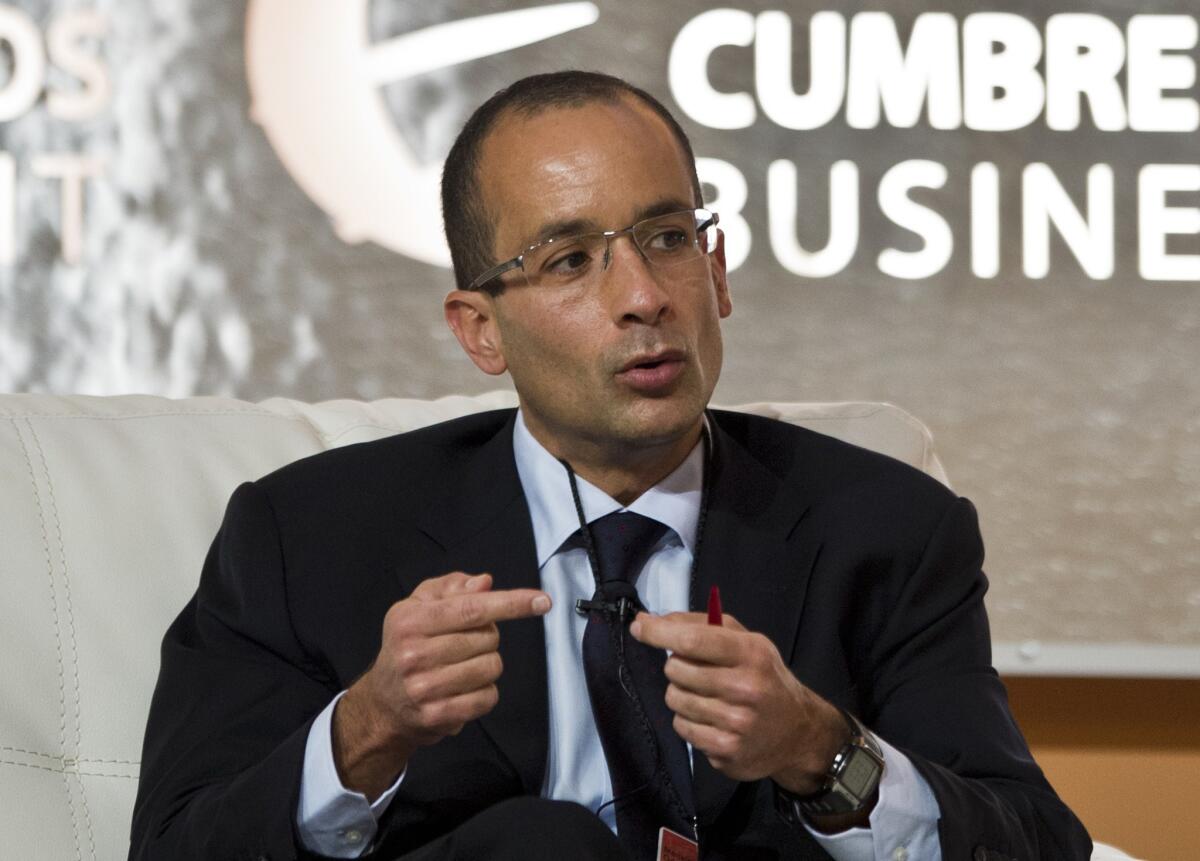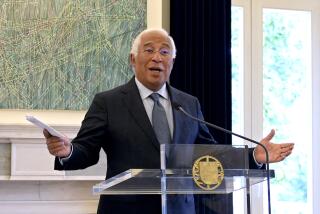Leading Brazil construction firm heads arrested in ‘Car Wash’ corruption inquiry

Brazilian Marcelo Odebrecht, president of Odebrecht construction company, delivers a speech during a 2012 conference in Queretaro, Mexico. He was arrested Friday in a high-level corruption inquiry.
- Share via
Reporting from Sao Paulo, Brazil — Police arrested the heads of Brazil’s two largest construction companies Friday, as an investigation into a multibillion-dollar corruption scheme involving state-controlled oil company Petrobras, which has rocked the government and economy since last year, pushes further toward the top of the country’s corporate world.
Marcelo Odebrecht and Otávio Marques, presidents of the Odebrecht and Andrade Gutierrez construction companies, were taken into custody Friday morning, and federal police announced that a total of 21 arrest warrants have been issued for employees of the two companies. Authorities are investigating corruption, embezzlement of public finances, money laundering, and racketeering, they said.
In a note, Odebrecht said the company “considers these warrants unnecessary, since the company and its executives have always cooperated fully with authorities in the investigations.” Odebrecht is the largest construction company in Latin America, and has activities around the world.
The so-called “Car Wash” investigation has slowly outlined the contours of a vast scheme in which billions of dollars were allegedly diverted from Petrobras to large construction firms, which then passed on payments to political parties.
As the probe expanded this year, President Dilma Rousseff’s approval ratings have dropped to record lows and growth has stalled, partially as a result of damage done to the energy sector. Over the same period, critics have at times lavished praised on federal police for taking on Brazil’s top most powerful economic and political players, something rarely seen here.
In April, police arrested Joao Vaccari Neto, treasurer of Rousseff’s Workers’ Party, which has been in power for more than a decade.
Odebrecht and Marques “were fully in charge of everything” going out at the companies, said federal police officer Igor Romário at a press conference Friday. “Concrete evidence has been discovered – and not just testimony, but documents – proving that they participated in negotiations that led to the formation of a cartel.”
More to Read
Sign up for Essential California
The most important California stories and recommendations in your inbox every morning.
You may occasionally receive promotional content from the Los Angeles Times.












